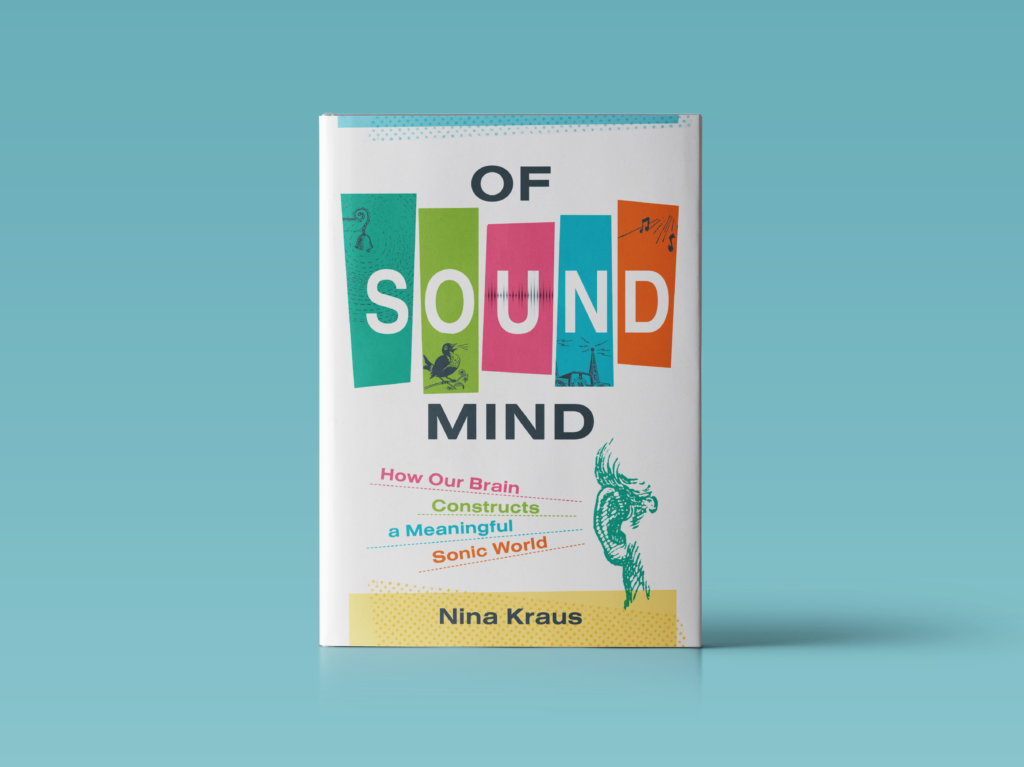Book Review

Of Sound Mind. How Our Brain Constructs a Meaningful Sonic World
By Nina Kraus, Ph.D.
The MIT Press. Cambridge, Massachusetts | London, England. ISBN 9780262045865 (hardcover). This book has 368 pages, including the index.
Reviewed by: Amineh Koravand, PhD
Dr. Nina Kraus is the Hugh Knowles Professor at Northwestern University, exploring the neural encoding of speech and music.
Professor Kraus’ Of Sound Mind. How Our Brain Constructs a Meaningful Sonic World is designed for anyone who desires an understanding of the long journey of sound, beginning with air vibrations outside of the ear to the neural pulses in the auditory brain. The book resembles a good story; Dr. Kraus effortlessly explains complex and advanced scientific concepts that can be easily understood by any reader and further develops these concepts with engaging art-based illustrations.
The book explains the nature of sound, the ways by which sound travels inside the auditory system, and the way we as human beings learn to make sense of sound based on our life-long experiences. It demonstrates that the act of “hearing” is multi-dimensional and actively involves sensing, moving, thinking, and feeling. Readers learn to appreciate that outstanding human achievement like speech and music result from deep connectivity between our sensory systems.
Dr. Kraus offers a clear and logical introduction to hearing mechanisms and the connection between “signals outside the head” and “signals inside the head.” These mechanisms and connections are explored in detail, and Dr. Kraus expands on these notions to highlight both the positive and negative impacts that environmental sounds can have on our brains. For example, the partnership between music and language is introduced, exploring how an enriched sensory processing, such as might occur in bilinguals, can positively modify the way our brain processes auditory information. In contrast, the book presents the negative impact that noise, aging, and even brain trauma can have on how our auditory brain or “sound mind” processes sound. Having extensive (past) experiences with sound can positively shape the auditory brain. At the same time, a less favourable environment, such as having a language disorder, can have opposite or adverse effects.
Throughout the book, readers explore how the effects of our experiences on the “sound mind,” whether rich or adverse, can be measured using highly sophisticated tests.
Brain electricity, in the form of positive or negative waves, can manifest differently in individuals based on their previous auditory experiences, and this is especially true of musicians, bilingual people, older adults, and individuals in clinical populations such as those with autism spectrum disorder, and concussion, etc. Moreover, Dr. Kraus identifies the importance of the Frequency Following Responses, or FFR, as one of the best neurophysiological measuring methods to record brain activities.
Of Sound Mind is strongly recommended to any reader, whether they possess extensive, little, or no previous background in this field. Every person who enjoys learning and expanding their knowledge of sound, hearing, listening, the adaptive auditory brain, how “every sound mind is unique”, and how “the sounds of our lives shape our brain” will enjoy this book. It may also greatly benefit undergraduate and graduate students looking to gain insight into various neuro-audiology research possibilities. Dr. Kraus’ narrative writing style and incorporation of personal experiences and anecdotes, including those from her childhood and travel, provide a refreshing perspective by exploring the scientific subject matter in a more approachable way. The information and knowledge presented in this book are highly valuable and will engage all readers.

